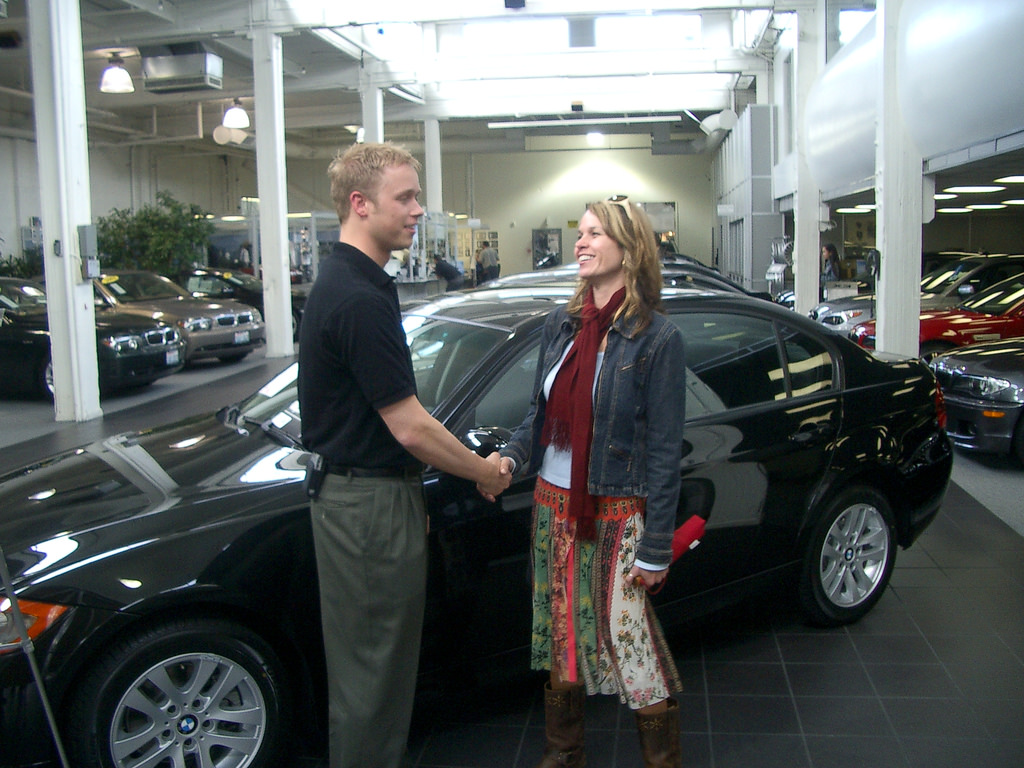The Caveats Of Company Cars For Your Small Business
There are two kinds of entrepreneurs. The first are those who are happy for their businesses to remain small. They pride themselves on the individual level of service they’re able to give their customers, and the detail with which their size allows them to maintain quality control. They’ll happily turn down work or opportunities for growth if said growth will impinge on their ability to fulfil their obligations to their customers and their brand. They tend to be smaller enterprises with only a handful of employees who may or may not be family members. Then, of course, for whom the term small business is a stepping stone that can’t be navigated quickly enough. They yearn for growth and make the strategic capital investments necessary to facilitate it. They also adhere to the core principles of their brand, but they’re not afraid to spend big money if it means painting on a broader canvas, and growing their brand. If your business falls into the latter category (and even if it doesn’t) you’ll likely be happy to invest in growth, but that doesn’t mean that you’re prepared to spend money needlessly. It may well be that the expansion of your business’ operations and services necessitates the use of one or more vehicles. If you’re unfamiliar with using a vehicle for commercial use this can be something of a minefield.
Like any entrepreneur, you recognise the important balance between keeping your overheads under control and ensuring that enough of your profits are invested back into your business to maintain a healthy cash flow and take advantages of opportunities for capital investment as and when they arise. Here are some caveats of which you’ll need to be conversant if you’re thinking of using one or more vehicles for your business to facilitate its growth.

Use your own car where possible
You may or may not be aware that you do not need to buy or lease a new vehicle for commercial use. You can actually use your own personal vehicle just as easily. So long as you have an appropriate insurance policy to include commercial use, you’ll be able to use your own car with impunity. If your business is still in its nascent stages this may be the most cost effective solution.
There may, however, be some circumstances under which this may not be appropriate. If your business necessitates an air of prestige with which you want to impress your clients, this may be compromised if you pull up in your battered and bruised family car with your kids handprints evident on the paintwork, cookie crumbs in the back seat and a series of scratches where your eldest scraped past on his bike. Moreover, your own vehicle may not be fit for purpose due to the constraints of its size, dimensions, engine size or reliability.
Plus, if (Heaven forbid) you should be subjected to an accident or collision on the road as a result of another driver’s negligence, your frustration and inconvenience will be multiplies twofold. Not only will you be dealing with an auto injury lawyer like Henry Dailey Law Firm to ensure that your interests are looked after and that the negligent driver is taken to task, you’ll also be out two cars for the price of one. Not only will your business face stagnation as your work vehicle is off the road, you’ll be personally inconvenienced as your personal car is off the road.

Learn about leasing
Leasing a vehicle may be a viable alternative to purchasing a vehicle specifically for business use. There are some inherent benefits to leasing, although there are also some caveats too. In terms of costs, your monthly payments will likely be less than the cost of finance on an equivalent new or used vehicle because you aren’t paying back any principal. You’ll be leasing the vehicle in its trouble free years and in most cases you’ll have the benefit of manufacturer’s warranty. You’ll also benefit from manufacturer’s perks like free scheduled maintenance like oil change services. You will likely enjoy the use of a higher priced vehicle than you would be able to afford privately and you’ll be insulated against the fluctuations of value that owners face when considering selling or part exchanging their car. There are also some inherent tax benefits, too. If your car is used exclusively for business purposes, your monthly lease payments will be entirely deductible. If there’s an element of personal use, your tax liability will be reduced proportionately to your personal use. If your car is used for 75% business use, 25% personal use, you will be able to claim 75% of the leasing cost as a tax deduction.
Leasing isn’t all sunshine and roses, though. Leasing one car after another will lead to never ending payments without you ever having your own vehicle to show for it. You’re forever renting without the benefit of ownership. Your lease company may also prove prohibitive by imposing a mileage limit per year which might seem perfectly reasonable at first but become increasingly untenable as your business expands.
Buying new
Buying a new vehicle may be a costly endeavor but it has its advantages. Like a leased vehicle, a newly purchased vehicle will benefit from a 3 year warranty period (but be mindful that excessive mileage or failure to adhere to your manufacturer’s maintenance schedule may invalidate your warranty). Again, your new vehicle will have opportunities for tax deductions, although be advised that a vehicle that seems incongruous with the nature of your business may trigger an audit from the IRS.
Buying used
A used vehicle may be a lower cost investment for your business but one that facilitates growth perfectly well. Be advised, however that since dealers have lower profit margins on used vehicles you’ll have a little less bargaining power when haggling over price (unless you’re in the market for a fleet of vehicles). If you’re buying a vehicle privately you’ll need to do your homework to ensure that you’re not overpaying on this investment. Research the vehicle’s “blue book value” so that you know the seller isn’t going to take you for a ride.
Whatever option you choose, ensure that you know your state’s requirements for registration of commercial vehicles. Good luck, and may your new vehicle drive your growth for years to come!




